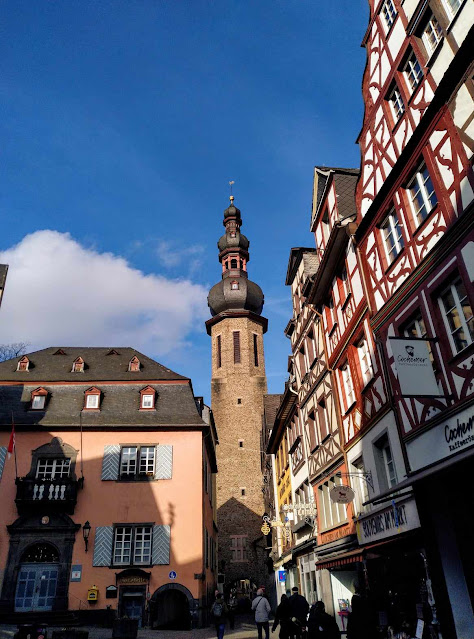A boat tour on the Mosel River in Cochem is a magical experience, offering a perfect way to soak in the beauty of one of Germany’s most picturesque regions. Cochem, a charming town nestled along the Mosel, is surrounded by lush vineyards, rolling hills, and medieval castles, creating a stunning backdrop as you glide down the river.
As the boat sets off, you’re immediately greeted with breathtaking views of Reichsburg Cochem, a fairy-tale-like castle perched high on a hill. Originally built around the year 1000, it was destroyed by French troops in 1689 and remained in ruins for centuries before being lovingly restored in the 19th century. Now, with its neo-Gothic architecture, richly furnished rooms, and sweeping views of the Mosel Valley, it stands as a striking landmark. Some boat tours even offer the chance to visit the castle, stepping back in time to experience its grandeur firsthand.
Drifting along the calm waters, the landscape unfolds with steep, terraced vineyards that produce some of the finest Riesling wines in the world. The Mosel Valley’s beauty changes with the seasons—lush green vines in summer, golden hues in autumn, and a crisp, misty charm in the cooler months. Many tours include stops at local wineries where visitors can sample the region’s celebrated wines. Meanwhile, onboard bars offer cool beers, refreshing ices, and even pizza, making the journey as relaxing as it is scenic.
A little way south of Cochem, the boat reaches Beilstein, often called the "Sleeping Beauty of the Mosel." This quaint village, with its cobbled streets and medieval charm, feels like a step back in time. Overlooking the town is Burg Metternich, a ruined castle that adds to the romantic atmosphere. Though partially in ruins, it offers spectacular views of the river valley and surrounding vineyards.
Whether you’re cruising in the warm afternoon glow or beneath the golden hues of a sunset, a boat tour on the Mosel is an unforgettable way to experience the region. The gentle rhythm of the water, the ever-changing landscape, and the historic charm of Cochem and Beilstein come together to create a truly memorable journey.

























